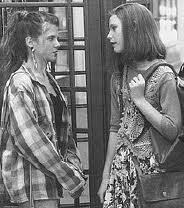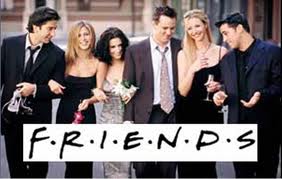The Validation of Strangers
“Sometimes someone says something really small, and it just fits into this empty place in your heart.â€
–Angela Chase, My So-Called Life
Â
           You’d think that following your dreams would feel just right. When I was debating whether to leave teaching and write full-time, I actually put “follow my dreams†in the pro column for writing. But even though it seems like that should trump everything else, it was still an agonizing decision. And so far, this experience has been isolating. Writing is often a solitary experience, and it’s like I feel preemptively lonely. One day I’m thrilled, the next I’m racked with fear and worry and—dare I say it?—regret. I wake up in the middle of the night thinking about the job that I’m leaving behind. About the way that I could be painting myself into a corner, limiting my options, burning my bridges. My students have told me that they want autographed copies of my first book, and I feel the weight of their expectations bearing down on my shoulders. I mean, how can I justify leaving them when I know there’s a very real possibility that I’ll never be published at all?  Â
           Just a few days after resigning, though, I got an email from a very new friend. Someone who’s only known me for a short time. And the message was short and sweet. A few words of encouragement about my recent choice, and remarkably, I felt lighter. More confident in my choice. That one email—those few sentences from a veritable stranger—made a world of difference.
           The reaction to my decision has been unanimously supportive. My closest friends, my family, and colleagues I deeply respect have all expressed their excitement for the chance that I’m taking. I’ve been called brave, told congratulations. But even with all of that enthusiasm, I’ve still doubted myself. Something about that email was different. Maybe it was the way that it was framed—almost like something a coach would say in a huddle—or maybe it was the fact that this person barely knows me and still has confidence in my decision.
           Remember when you were a kid, and your mom would tell you how cute you looked in that dress? Or your dad was sure that you were the best player on your soccer team? Remember how you never really believed it until one of the kids at the dance, or on the field, said the same thing? It’s a sad fact, but strangers can sometimes be more influential than our nearest and dearest. Our friends and family are just too damn close to the situation to be reliable sources. They’re supposed to compliment and love us no matter what. You could say that they have to; it’s their job, for crying out loud!  Â
           But like Angela said, sometimes it’s the smallest things that fill the voids in our hearts.  I’m distant emotionally from the people who know me best right now. And perhaps that’s the power of the stranger. When it’s someone who is completely outside of your inner circle, someone who can act as an outsider looking in, without any bias or motive…well, that person offers a different perspective. Or, at least, you perceive it as different. And it’s exactly what you need to hear.
           We all wish that one person could fulfill all of our emotional needs, but how realistic is that? How fair is it, even, to ask that of someone? I’m surrounded by amazing people, and I’m so lucky to have the community that I do. But each of them is so unique, so special, and I go to them with different things all the time. Why is it so surprising, then, that a new person would access—and help alleviate—the heart of my insecurities?
           A near-stranger helped calmed my troubled mind, probably without even realizing it. And I’m thankful.Â
Â
Â
Disclaimer: I realize that I have a bit of a streak going right now, in that I’ve only been writing about my decision to write full-time. So I promise to change that up in my next post. Cross my heart.


